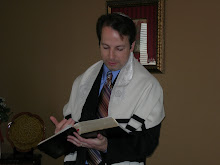
HASHEM said to Abram, "Go for yourself from your land, from your relatives, and from your father's house to the land I will show you.
God commands us to heed His voice, yet we have a choice to make. The choice is ours. The end result is His. Abram at this point in Genesis was called by the Father, Abram; not Abraham. The story of Abraham is a delightful one, one of hope and a indication that God pays close attention. As I sit and write this article there's a spirit within that shines forth light, a door has flung open the boundary that once was a hindrance; the river bank holding back, it is now gone. God is Spirit and so are we. God is the source and we are those who receive. Unlike Terah (father of Abraham) the son Abraham was unique. God saw this uniqueness. As a young man Abram began to question that which was around him and perhaps the very action aside from speaking within and without, was the destruction Abram brought upon his fathers Idols. For Abram saw they they could not see, speak, move nor smell. These idols that many had put their hope were nothing more than clay crafted into the likeness of the craftsman and purchaser. During the day Abram would question the sun and at night he would question darkness and to the conclusion he came that there had to be a higher being. A God who creates and puts into affect. A God of mercy. The Creator of Heaven and Earth. God searches our hearts, our thoughts as well as our questions regardless of their magnitude. Prior to to the flood God found no one worthy to live other than one man (Noah). God promised that such an event would never take place again, and it never has.
We read in Genesis chapter 12 that God calls Abram out of a land he had known all his life, away from his father's house and from his relatives. God saw the man Abram and knew the importance of taking him out and away to a place that he won't be influenced by idolatry. This was the first of ten major tests he was put through. God now had someone He could build upon, someone who would not sway from the path of righteousness and who would become the father of nations. We often think that God doesn't need us to carry out His plan; though in places this stands true, He desires for us His likeness. More often then not we miss the mark, the very reason we exist. More often then not we're to busy quarreling with one another, planning wars, pointing fingers, judging and so on. Not until we focus on God with all out heart, mind, soul and strength will we see the movement of HASHEM in the way He desires to show us. HASHEM is not formed from clay nor should He put in a box while you do what you do.
In the book of 2nd Kings chapter 1 is the story of Ahaziah a man who fell through from his home. He sent messengers to inquire of Baal-zebub rather he was going to live or not. At this point an angel of God gave word to Elijah to go towards the messengers and to deliver them a message concerning the Word of God for Ahaziah. God said that he shall surely die! Why? Because as God put it, "Is there not a God in Israel that you had to go and summon Baal-zebub.
My point to you is this. Abraham desired to know the one true God, the Creator of all things, the very One Who recreates daily. Though the sun may go down today tomorrow it shall rise again. We have been conditioned in a such away that we attempt other resources rather they are people or services then to approach God from the beginning. If and when we acknowledge that God is the rightful owner of all there is, shouldn't we go to Him and Him only?
Point, this was the importance of sending Abram from his homeland to a new place without influence from man, without influence from society, and away from corruption. Today as Torah students rather we are Jews or Gentiles, rather we are believers or not, we must follow in the foot steps of the Patriarchs. We too must go out from the muck, from our ways of old. We must not be known for our empty words, for talk and no action. Let us not say God knows my heart and yet do what we desire.
There's much more to write but at a later time.
Shalom,
Rabbi Lawrence


No comments:
Post a Comment